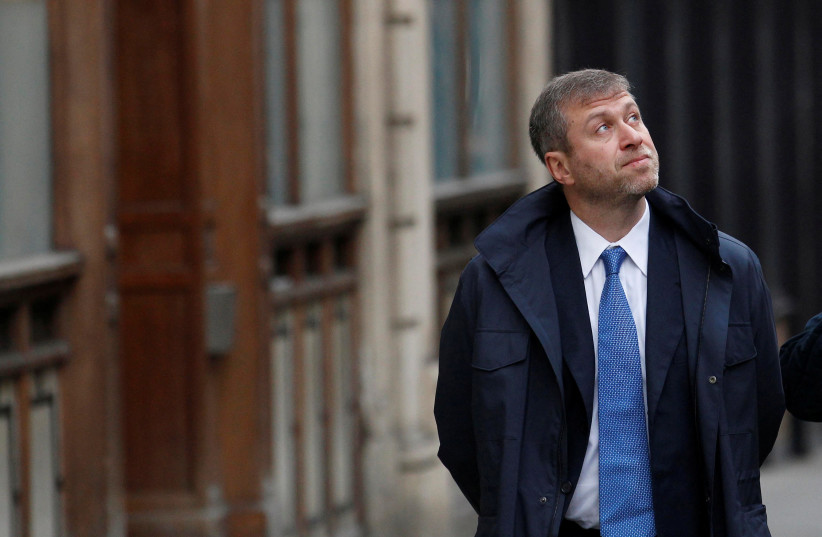Israel blocked Russian oligarch Roman Abramovich from keeping his private jet at Ben-Gurion Airport after he was sanctioned due to close ties with Russian President Vladimir Putin, a diplomatic source said on Tuesday.
Abramovich, who also has Israeli citizenship, flew from Moscow to Israel on Sunday and left for Istanbul on Monday. He landed in Moscow on Tuesday.
Abramovich is a target of Western sanctions on Russia and cannot enter the UK, where he has lived in recent years and where he currently owns the Chelsea soccer team. He is also a major donor to hospitals and other institutions in Israel. Yad Vashem suspended its partnership with Abramovich last week, which included a donation of tens of millions of dollars.
Israel does not have laws that allow it to seize people’s property, the way other countries have said they would do to oligarchs’ mansions, jets and yachts. That threat might have led to some of the oligarchs trying to park or dock in Israel indefinitely.
However, Jerusalem plans to do what it can do to ensure it is not used as a haven for oligarchs, even without an official legislative framework, the source said. Passing such a law would likely take a long time.

In one such move, Abramovich was not allowed to leave his plane in Israel indefinitely. He was intentionally granted a short slot of time to park his jet at Ben-Gurion Airport.
Israeli financial institutions have also moved to comply with US sanctions, with government support, the source said.
“Israel will not be a route to bypass sanctions imposed on Russia by the United States and other Western countries,” Foreign Minister Yair Lapid said on Monday.
Ukrainian Foreign Minister Dmytro Kuleba tweeted that he was “assured [in a call with Lapid on Tuesday that] Israel won’t be the route for Russia to bypass sanctions. Grateful for Israel’s mediation efforts and humanitarian aid. We discussed ways of ending the war in Ukraine. Agreed that the rights of Ukrainians arriving in Israel will be respected.”
Lapid said he updated Kuleba on Israel’s humanitarian aid to Ukraine and the field hospital it plans to construct.
The call lasted about 45 minutes, and the ministers spoke in English.
The Foreign Ministry started a joint team led by its senior deputy legal adviser, Keren Shahar, along with the Bank of Israel, the Finance Ministry, the Economy Ministry, the Airports Authority, the Energy Ministry and the Justice Ministry, to examine which Western sanctions on Russia are relevant to ensure Israel is not used to circumventing them.
Sanctions that target finance and aviation were among those in question, said a spokesman for Lapid, but the Foreign Ministry declined to provide a list or to elaborate.
UK Foreign Secretary Liz Truss tweeted that it was “welcome news from Yair Lapid that Israel will support sanctions against Russia. We are working with our allies and partners to apply pressure on Putin and challenge his unprovoked and needless attack on Ukraine.”
